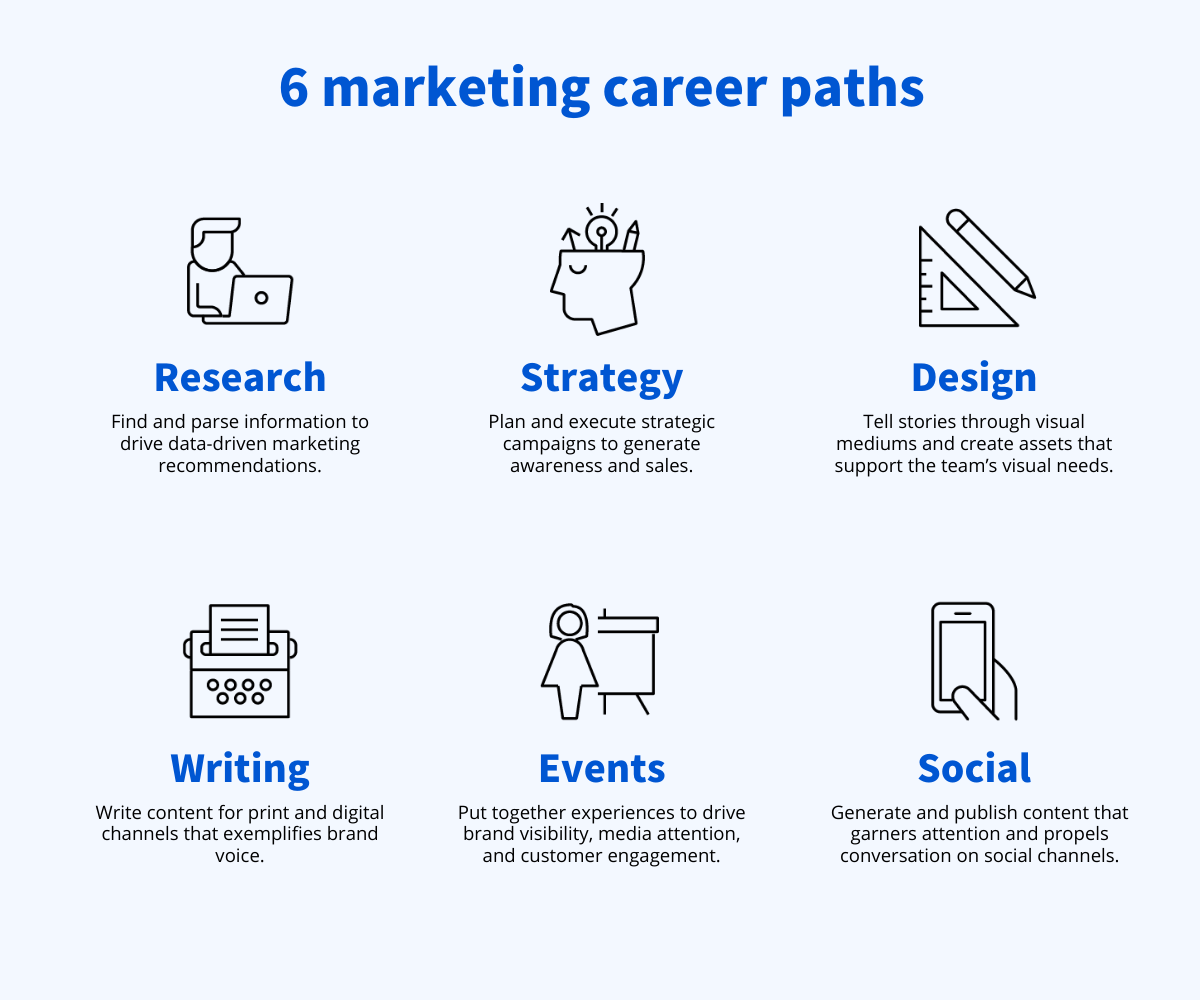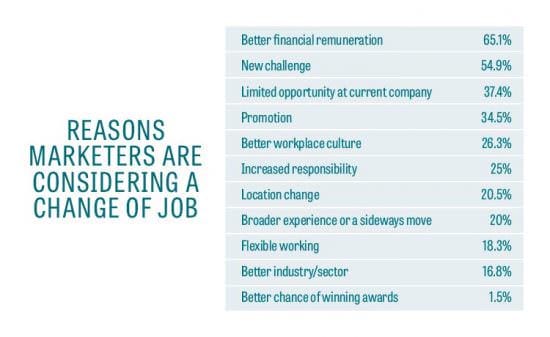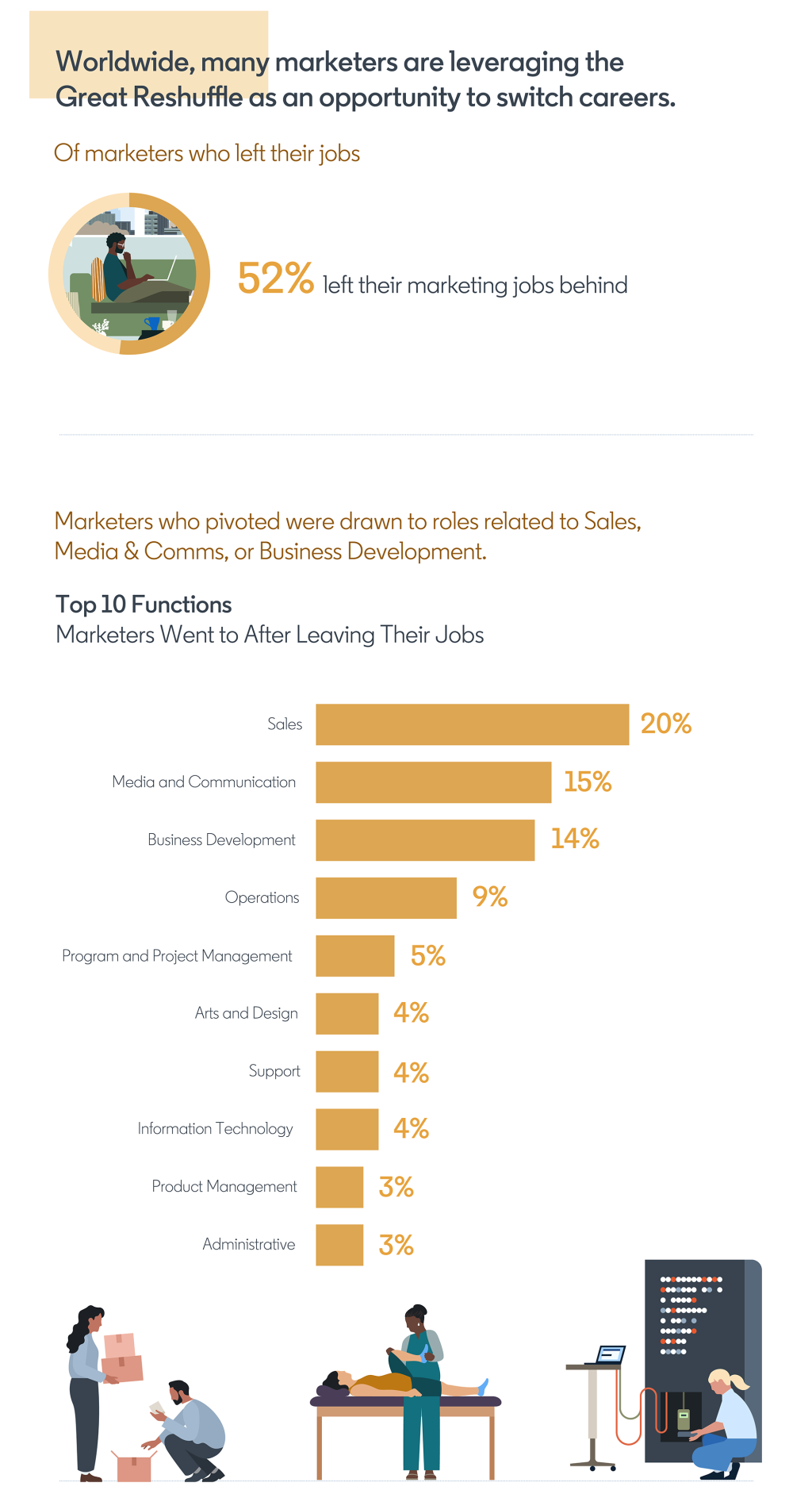Transitioning from a marketing role to a different career can feel daunting, but it’s a journey many professionals undertake successfully. Marketing skills, such as communication, data analysis, and strategic thinking, are highly transferable across industries. Whether you’re seeking a fresh challenge, exploring a passion, or adapting to market shifts, pivoting careers requires careful planning and self-assessment. This article explores actionable steps to identify your transferable skills, align them with new opportunities, and navigate the transition effectively. From upskilling to networking, discover how to leverage your marketing expertise to carve out a fulfilling path in a new field.
How to Successfully Transition from a Marketing Role to a New Career Path
1. Assess Your Transferable Skills
When transitioning out of a marketing role, the first step is to identify your transferable skills. Marketing professionals often possess strong communication, analytical, and project management skills, which are valuable in many fields. Consider how these skills can apply to roles in areas like product management, sales, or consulting. Reflect on your experience with data analysis, content creation, and customer engagement to determine how they align with your desired career.
See Also Simple Video Editing Software for Captions and Basic Edits?
Simple Video Editing Software for Captions and Basic Edits?| Skill | Relevance in New Career |
|---|---|
| Communication | Essential for roles in sales, consulting, or public relations. |
| Analytical Thinking | Valuable in data analysis, business strategy, or operations. |
| Project Management | Useful in product management, event planning, or operations. |
2. Explore New Industries and Roles
Research industries and roles that align with your interests and skills. For example, if you enjoy creative problem-solving, consider roles in UX/UI design or brand strategy. If you prefer data-driven decision-making, explore careers in business intelligence or market research. Networking with professionals in your target industry can provide insights into job requirements and growth opportunities.
| Industry | Potential Roles |
|---|---|
| Technology | Product Manager, UX Designer, Data Analyst |
| Consulting | Business Consultant, Strategy Analyst |
| Non-Profit | Program Manager, Fundraising Coordinator |
3. Upskill and Gain Relevant Certifications
To make yourself more competitive in a new field, consider upskilling through online courses, workshops, or certifications. For example, if you're transitioning into data analytics, certifications in SQL, Python, or Tableau can be beneficial. Similarly, if you're moving into project management, a PMP certification can enhance your credibility. Focus on acquiring skills that are in-demand in your target industry.
See Also Is It Worth Looking at a Masters in Marketing Now?
Is It Worth Looking at a Masters in Marketing Now?| Skill | Certification |
|---|---|
| Data Analysis | Google Data Analytics Certificate |
| Project Management | PMP (Project Management Professional) |
| Digital Marketing | HubSpot Content Marketing Certification |
4. Leverage Your Network for Opportunities
Your professional network can be a valuable resource when transitioning careers. Reach out to former colleagues, mentors, or industry connections to learn about potential opportunities. Attend industry events, webinars, or conferences to expand your network. Informational interviews can also provide insights into the day-to-day responsibilities of roles you're considering and help you identify key decision-makers in your target field.
| Networking Strategy | Outcome |
|---|---|
| Informational Interviews | Gain insights into roles and industries. |
| LinkedIn Connections | Discover job openings and referrals. |
| Industry Events | Build relationships with professionals. |
5. Tailor Your Resume and Cover Letter
When applying for roles outside of marketing, it's crucial to tailor your resume and cover letter to highlight relevant skills and experiences. Use action verbs and quantifiable achievements to demonstrate your impact in previous roles. For example, if you're applying for a project management position, emphasize your ability to lead cross-functional teams and deliver projects on time and within budget.
See Also Event Marketing Platform for Customer Events?
Event Marketing Platform for Customer Events?| Resume Section | Key Focus |
|---|---|
| Professional Summary | Highlight transferable skills and career goals. |
| Work Experience | Showcase achievements with measurable results. |
| Skills | List technical and soft skills relevant to the new role. |
What career can I change to from marketing?

1. Transitioning to Digital Marketing
If you are already in marketing, transitioning to digital marketing can be a natural progression. This field leverages your existing skills while allowing you to specialize in online strategies. Here are some key areas to consider:
See Also Taking on Social Media and Digital Marketing
Taking on Social Media and Digital Marketing- Search Engine Optimization (SEO): Focus on improving website visibility and organic traffic.
- Social Media Management: Manage and grow brand presence on platforms like Instagram, Facebook, and LinkedIn.
- Content Marketing: Create valuable content to attract and engage target audiences.
2. Exploring Public Relations (PR)
Public Relations is another viable career path for marketing professionals. It involves managing a company's public image and communication. Key responsibilities include:
- Media Relations: Building relationships with journalists and securing media coverage.
- Crisis Management: Handling negative publicity and maintaining brand reputation.
- Event Planning: Organizing events to promote brand awareness and engagement.
3. Moving into Sales
With a background in marketing, transitioning to a sales role can be a logical step. Your understanding of customer behavior and market trends can be highly beneficial. Consider these roles:
See Also GTM (Go to Market Strategy) Team and Role?
GTM (Go to Market Strategy) Team and Role?- Business Development: Focus on identifying new business opportunities and partnerships.
- Account Management: Manage client relationships and ensure customer satisfaction.
- Sales Strategy: Develop strategies to increase sales and revenue.
4. Shifting to Product Management
Product management is another career option that aligns well with marketing skills. This role involves overseeing the development and lifecycle of a product. Key areas include:
- Market Research: Analyze market trends and customer needs to guide product development.
- Product Launch: Plan and execute strategies for introducing new products to the market.
- Cross-functional Collaboration: Work with teams like engineering, design, and marketing to bring products to life.
5. Venturing into Data Analysis
If you have a knack for numbers and analytics, transitioning to a data analysis role could be a great fit. This field involves interpreting data to make informed business decisions. Key responsibilities include:
- Data Collection: Gather data from various sources to analyze market trends.
- Data Visualization: Use tools like Tableau or Power BI to present data insights visually.
- Performance Metrics: Track and report on key performance indicators (KPIs) to measure success.
What other jobs can you do with marketing?

Content Creation and Management
Marketing skills are highly transferable to roles in content creation and management. Professionals in this field focus on developing engaging and relevant content to attract and retain audiences. Key responsibilities include:
- Writing and editing blog posts, articles, and social media updates.
- Creating multimedia content such as videos, infographics, and podcasts.
- Managing content calendars and ensuring consistent brand messaging across platforms.
Digital Advertising and PPC Campaigns
Marketing expertise is essential for roles in digital advertising, particularly in managing pay-per-click (PPC) campaigns. These professionals optimize ad spend and maximize ROI. Key tasks include:
- Designing and launching targeted ad campaigns on platforms like Google Ads and Facebook.
- Conducting keyword research and optimizing ad copy for better performance.
- Analyzing campaign data to refine strategies and improve conversion rates.
Social media management is a natural extension of marketing skills, focusing on building and maintaining a brand's online presence. Responsibilities include:
- Developing and executing social media strategies to increase engagement.
- Monitoring and responding to audience interactions and feedback.
- Tracking analytics to measure the success of social media campaigns.
Market Research and Analysis
Marketing professionals often transition into roles focused on market research and analysis. These roles involve gathering and interpreting data to guide business decisions. Key activities include:
- Conducting surveys and focus groups to understand consumer behavior.
- Analyzing competitor strategies and market trends.
- Preparing detailed reports to inform marketing strategies and product development.
Brand Management
Brand management is another area where marketing skills are highly valuable. Professionals in this field work to build and maintain a strong brand identity. Responsibilities include:
- Developing brand guidelines to ensure consistency across all communications.
- Collaborating with design and marketing teams to create brand assets.
- Monitoring brand perception and implementing strategies to enhance reputation.
How to leave a marketing job?

How to Prepare for Resignation
Leaving a marketing job requires careful preparation to ensure a smooth transition. Start by reviewing your employment contract to understand any notice period or obligations. Update your resume and LinkedIn profile to reflect your current role and achievements. Additionally, prepare a resignation letter that is professional and concise. Here are the key steps:
- Review your contract for notice periods and exit clauses.
- Update your resume and LinkedIn profile with recent accomplishments.
- Draft a resignation letter that is clear and professional.
How to Communicate Your Resignation
Effective communication is crucial when leaving a marketing job. Schedule a meeting with your manager to discuss your decision in person. Be honest but tactful about your reasons for leaving, and avoid burning bridges. Follow up with a formal resignation letter. Here’s how to handle this step:
- Schedule a meeting with your manager to discuss your resignation.
- Be transparent but professional about your reasons for leaving.
- Submit a formal resignation letter after the meeting.
How to Handle the Transition Period
During the transition period, it’s important to maintain professionalism and ensure a smooth handover. Complete any pending tasks and document your processes to help your successor. Offer to train colleagues or assist in hiring your replacement. Here’s what to focus on:
- Complete pending tasks and tie up loose ends.
- Document your processes for a seamless handover.
- Offer assistance in training or hiring your replacement.
How to Maintain Professional Relationships
Leaving a marketing job doesn’t mean severing ties with your colleagues or employer. Stay connected with your network by exchanging contact information and expressing gratitude. Avoid speaking negatively about the company or your experience. Here’s how to maintain relationships:
- Exchange contact information with colleagues and managers.
- Express gratitude for the opportunities and experiences.
- Avoid negative comments about the company or team.
How to Plan Your Next Career Move
After leaving your marketing job, take time to reflect on your career goals and plan your next steps. Research potential opportunities, update your skills, and network with industry professionals. Consider seeking advice from mentors or career coaches. Here’s how to plan effectively:
- Reflect on your career goals and aspirations.
- Research new opportunities in the marketing field.
- Network with professionals and seek mentorship.
How do you transition out of market research?

1. Identify Transferable Skills
Transitioning out of market research requires identifying the transferable skills you’ve developed. These skills can be applied to various roles in different industries. Consider the following:
- Analytical skills: Your ability to interpret data and derive insights is valuable in roles like data analysis, business intelligence, or consulting.
- Communication skills: Crafting reports and presenting findings can translate well into roles in marketing, public relations, or content creation.
- Project management: Managing research projects equips you with organizational and leadership skills applicable to operations or product management.
2. Explore Alternative Career Paths
Market research professionals can transition into a variety of fields. Here are some potential career paths to consider:
- Marketing and Brand Management: Use your understanding of consumer behavior to shape marketing strategies.
- Product Development: Leverage insights from market research to guide product design and innovation.
- Consulting: Offer expertise in data-driven decision-making to businesses across industries.
3. Upskill and Gain New Qualifications
To transition smoothly, consider acquiring new skills or certifications that align with your desired career path. Focus on the following:
- Data Science and Analytics: Learn tools like Python, R, or SQL to enhance your technical expertise.
- Digital Marketing: Gain certifications in SEO, SEM, or social media marketing to pivot into marketing roles.
- Business Strategy: Pursue courses in strategic management or an MBA to broaden your business acumen.
4. Network Strategically
Building a strong professional network is crucial for transitioning out of market research. Here’s how to do it effectively:
- Attend industry events: Connect with professionals in your target field through conferences and seminars.
- Leverage LinkedIn: Engage with thought leaders, join relevant groups, and share insights to increase visibility.
- Seek mentorship: Find mentors who have successfully transitioned from market research to guide you.
5. Tailor Your Resume and Cover Letter
When applying for roles outside market research, customize your application materials to highlight relevant skills and experiences. Focus on:
- Emphasizing transferable skills: Showcase how your market research expertise applies to the new role.
- Using industry-specific language: Adapt your resume to reflect the terminology of your target field.
- Highlighting achievements: Quantify your accomplishments to demonstrate your impact in previous roles.
Frequently Asked Questions from Our Community
What skills from a marketing role are transferable to other careers?
Transitioning from a marketing role to a different career often involves leveraging the transferable skills you've developed. Skills such as communication, data analysis, project management, and creativity are highly valued across various industries. For example, your ability to analyze consumer behavior can be useful in roles like product management or business analysis. Additionally, your experience in crafting compelling messages can translate well into careers in public relations, content creation, or even sales. Identifying these skills and highlighting them in your resume and interviews can make the pivot smoother.
How can I identify a new career path that aligns with my interests and strengths?
To identify a new career path, start by conducting a self-assessment to understand your interests, strengths, and values. Reflect on what aspects of your marketing role you enjoyed most and which tasks you found fulfilling. Research industries and roles that align with these preferences. Networking with professionals in fields you're considering can provide valuable insights and help you understand the day-to-day realities of those roles. Additionally, consider taking online courses or attending workshops to explore new areas and build relevant skills. This exploratory phase is crucial for making an informed decision about your next career move.
What steps should I take to prepare for a career change out of marketing?
Preparing for a career change out of marketing involves several key steps. First, upskill by acquiring new knowledge or certifications relevant to your target industry. For instance, if you're moving into data science, you might need to learn programming languages like Python or R. Next, update your resume to emphasize transferable skills and any new qualifications. Tailor your cover letter to explain your career transition and how your marketing background adds value to the new role. Networking is also crucial; attend industry events, join professional groups, and connect with individuals in your desired field. Finally, consider gaining hands-on experience through internships, freelance projects, or volunteer work to build credibility in your new career path.
How can I effectively communicate my career pivot to potential employers?
Effectively communicating your career pivot to potential employers requires a clear and compelling narrative. Start by crafting a strong personal brand that highlights your unique combination of marketing expertise and new skills. In your resume and cover letter, focus on transferable skills and relevant accomplishments that demonstrate your ability to succeed in the new role. During interviews, be prepared to explain why you're making the transition and how your marketing background provides a unique perspective. Use specific examples to show how your past experiences have prepared you for the challenges of the new role. Confidence and clarity in your communication will help employers see the value you bring, despite the career change.
Leave a Reply


Articles of interest